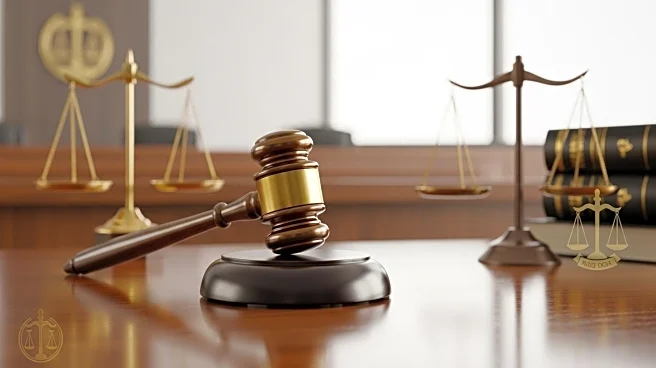What's Happening?
U.S. District Judge Michael S. Nachmanoff, known for his reserved demeanor and legal acumen, is presiding over the high-profile case involving former FBI Director James B. Comey. The case centers on allegations that Comey made false statements during his 2020 congressional testimony. This assignment places Judge Nachmanoff, a former public defender nominated by President Joe Biden, in the public eye. His judicial philosophy, which emphasizes listening over advocacy, will be tested as he navigates the complexities of this politically charged case. The indictment of Comey follows President Trump's public demands for legal action against him, raising questions about the impartiality of the proceedings.
Why It's Important?
The case against Comey is significant due to its potential implications for the U.S. justice system and political landscape. It underscores concerns about the politicization of the Justice Department, as President Trump's involvement in the indictment process has been criticized as an attempt to settle political scores. The outcome of this case could influence public trust in the judicial system and set precedents for how politically sensitive cases are handled. Judge Nachmanoff's approach to the case will be closely watched, as it may impact perceptions of judicial independence and fairness.
What's Next?
Comey's arraignment is scheduled, and the legal proceedings will likely attract significant media attention. The defense, led by prominent attorneys, may seek to dismiss the indictment, arguing that it was influenced by political motivations. The case could lead to broader discussions about the role of politics in judicial processes and the need for reforms to ensure impartiality. Stakeholders, including legal experts and political analysts, will be monitoring the case for its potential to reshape norms around the separation of powers and the independence of the judiciary.
Beyond the Headlines
The case highlights deeper issues regarding the balance of power between the executive branch and the judiciary. It raises ethical questions about the use of prosecutorial power for political ends and the potential erosion of judicial impartiality. The outcome could have long-term implications for how future administrations interact with the judicial system and the safeguards needed to protect against undue influence.










